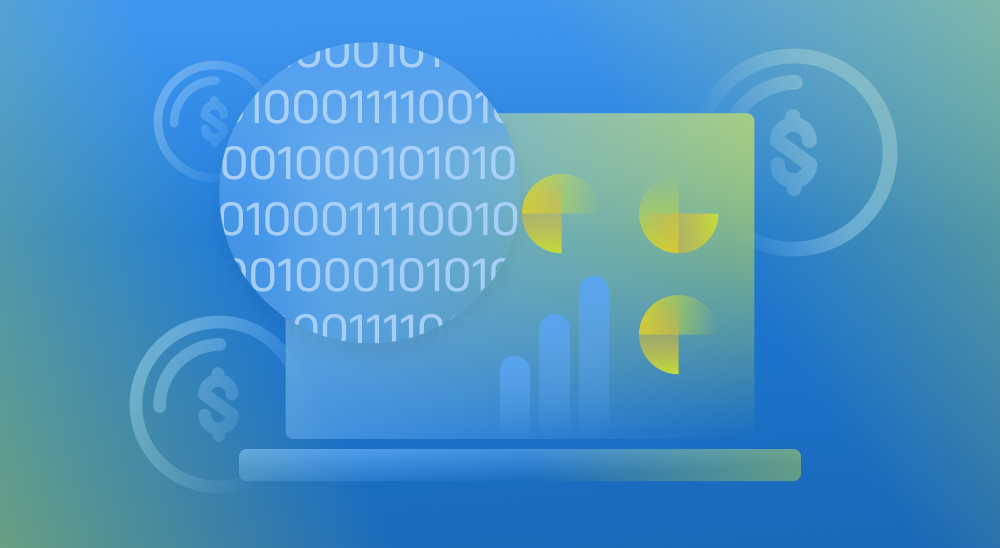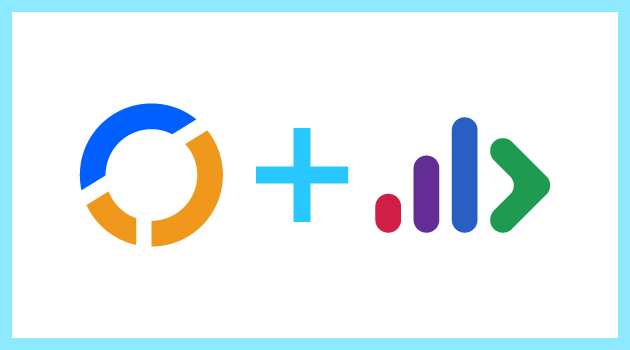
What is Data Science and how it applies in companies
Did you know that Data Science is expected to increase job opportunities by 15% by 2029? That's according to the US Bureau of Labor Statistics.
In recent years, this field has gained significant prominence, but many companies still don't know how to harness its potential. This is partly because they believe they need to structure and maintain an exclusive team of scientists for this purpose.
Shall we shed some light on this?
- Keep reading to find out:
- What exactly is Data Science?
- What is the history of Data Science?
- Why is Data Science important for businesses?
So, what is Data Science exactly?
There are different definitions of what Data Science entails, involving areas such as statistics, computer science, software engineering, among others. Moreover, the term is far from being universally agreed upon in academic circles.
For example, it is described as "an interdisciplinary field that uses scientific methods, processes, algorithms, and systems to extract value from data," according to Oracle.
Mathematician D.J. Patil, one of the most prominent experts in the field, summarizes Data Science as the ability to extract knowledge and insights from a broad and complex set of records.
Thus, in an effort to translate the concept, the University of Berkeley created the Data Science Lifecycle, organized into five stages:
- Capture;
- Storage;
- Processing;
- Analysis;
- Communication.
Simplifying Data Science
In simple terms, Data Science is a multidisciplinary approach to extracting actionable insights from the vast and growing volumes of data generated and collected by organizations, governments, individuals, etc.
It involves preparing data for analysis and processing and presenting the results to reveal patterns and enable stakeholders to draw informed conclusions.
Essentially, organizing this data may involve cleaning, aggregating, and manipulating it to make it suitable for specific types of processing. Analysis requires the development and use of algorithms and Artificial Intelligence (AI) models.
This process is driven by software that sifts through the data to find internal patterns and transform these patterns into predictions that support business decision-making. The accuracy of these predictions must be validated through scientifically designed tests and experiments. And the results must be shared through the skillful use of data visualization tools that allow anyone to see patterns and understand trends.
Demystifying the Data Scientist
As a result, data scientists have skills that go beyond those of a typical data analyst.
Overall, a data scientist should be able to:
- Apply mathematics, statistics, and the scientific method;
- Use a wide range of tools and techniques to assess and prepare data - everything from SQL to data mining and data integration methods;
- Extract insights from data using predictive analysis and Artificial Intelligence (AI), including machine learning and deep learning models;
- Write applications that automate data processing and calculations;
- Tell - and illustrate - stories that clearly convey the meaning of the results to decision-makers and stakeholders at all levels of technical knowledge and understanding;
- Explain how these results can be used to solve business problems.
Briefly, what is the history of Data Science?
The earliest mentions of what is now known as Data Science appeared in 1962, in the article "The Future of Data Analysis," by mathematician John Tukey.
Furthermore, another important milestone was the research conducted by computer scientist Peter Naur in 1974, titled "Computing Methods," in which he mentions and defines the term more elaborately.
Although not new, it was in the last two decades - when data became "the new oil" - that this field gained greater prominence.
The growth was so consistent that in 2008, D.J. Patil and Jeff Hammerbacher first used the term "data scientist" to describe a professional with skills to explore the world of Big Data.
The profession has become one of the most sought after in the world, coined by the University of California as the most exciting career opportunity in the 21st century.
Currently, it is the activity that leads the ranking of best occupations by Glassdoor in the United States.
This shows how data only has its true value when qualified professionals demonstrate the ability to transform it into knowledge and insights.
What is the importance of Data Science for businesses?
Digital transformation has brought about a revolution in the global economy. According to IBM, 90% of today's data was created in just two years.
This scenario has led industries of all sectors to seek ways to process large volumes of information to obtain competitive intelligence.
Therefore, understanding what Data Science is and its advantages is essential in organizations. Let's see, then, some examples of how to use Data Science in different business areas that demonstrate its importance to the corporate world.
Communication and Public Relations
In corporate communication, the practice can assist in organizing and analyzing unstructured data, such as news and videos.
In practical terms, it means, for example, being able to conduct integrated media monitoring - including social media - in real-time.
Thus, with Data Science, PR professionals have achieved increased productivity in their work of measuring and classifying their press mentions across all channels.
Market Intelligence
Due to its strategic nature, market intelligence areas have also begun to incorporate and understand what Data Science is to support the growth of companies.
Let's take a look at some quick examples of how this has been done:
- Generating insights from the analysis of internal records of organizations;
- Identifying trends with the capture of unstructured external data;
- Comparing performance with competitors, made possible by market information analysis.
The Marketing area, for example, has developed significantly with the adoption of technology. This is because analyzing information about customers, competitors, and the market segment as a whole allows the sector to develop more assertive and integrated strategies.
Sales
The sales area has benefited from Data Science by achieving greater effectiveness in sales projections, for example.
Through automated analysis of past sales data, for instance, it is possible to be more efficient in forecasting future results.
Thus, the practice of sales intelligence is consolidated so that sales teams can select better opportunities more quickly and accurately, bringing more financial return to companies.
For example, by collecting and interpreting relevant information from your target audience, it is possible to make offers more aligned with the customer's consumption profile and thus better meet their expectations.
As a result, sales operations become more effective, and the consumer's purchasing experience is smoother and more enjoyable.
What are the main practical applications of Data Science technologies and methods?
Another very interesting way to understand how Data Science technologies and methods work is by visualizing their practical applications.
And that's what you'll see in the following topics. Check it out!
Understanding consumers in-depth
Customer data reveals details about their habits, demographic characteristics, preferences, aspirations, and more. With so many potential sources, a basic understanding of Data Science can help make sense of this.
For example, your company can collect data about a customer in situations such as:
every time they visit the website or physical store; when they add an item to the cart or complete a purchase; when opening a marketing email; when engaging with a social media post. After ensuring that the data from each source is accurate, simply combine them in a process called data transformation.
By aggregating, processing, and analyzing the data, it is possible to draw conclusions and identify patterns and trends in consumer behavior.
Understanding who customers are and what motivates them helps ensure that products and/or services meet their needs.
Projections and Predictability
Collecting and analyzing data on a larger scale enables organizations to identify emerging trends in their market. Tracking purchase data, celebrity and influencer profiles, as well as search engine queries, can reveal which products people are interested in.
In the early 2000s, the Oakland Athletics' recruitment budget was so small that the team couldn't recruit quality players.
Then the general manager redefined quality using game statistics that other teams ignored to predict a player's potential and assemble a strong team at a low cost.
His strategy worked, and everything started to grow from there. Author Michael Lewis wrote Moneyball, a book about the phenomenon that later became a film starring Brad Pitt. Today, there is a global market for sports analytics through data expected to reach $4.5 billion by the end of 2024.
Efficiency in Online Sales
There was a time when everyone in a particular city shopped at the same mall. Today, citizens can shop at their own personalized digital mall, also known as the internet.
Online retailers typically automate their web store's behavior based on different visitor data profiles. This can mean adjustments to page layouts, personalized featured products, among other things.
Some stores may also adjust prices based on what consumers appear able to pay, a practice called dynamic pricing. Even websites that don't sell anything (at least not directly) present ads in this format.
Considering the service sale, we can highlight the Airbnb case. This platform used Data Science to completely renovate its search function, making the user's life easier when choosing accommodation and consequently increasing profitability.
Pinpoint Control of Corporate Finances
Organizational finance teams can use Data Science methods and tools to create reports, generate forecasts, and analyze trends.
Data on cash flows, assets, and debts of a company are (or should be) constantly produced and collected. Therefore, financial analysts can use them to algorithmically detect growth or decline trends in finances.
For example, a revenue forecasting professional can use predictive analysis. This would require calculating the average predicted selling price per unit for future periods and multiplying it by the number of units expected to be sold during those periods.
With a good predictive analysis tool, it's possible to estimate the average selling price and the expected number of units sold, finding trends in the company's and industry's historical data, which must be qualified, cleaned, and structured. This is Data Science in action!
Additionally, risk management analysis can be used to calculate whether certain business decisions are worth potential disadvantages. Each of these financial analyses offers valuable insights and guides business decisions.
Enhancements in Information Security
The volume of online fraud has been increasing year after year. It accompanies the growing digital transformation, a movement that encompasses all layers of society; from the simple browsing of ordinary people to million-dollar monetary transactions, from the functioning of companies to governments.
Data Science, with its applications and methods, acts in the detection and anticipation of fraud. Simply put, data scientists dedicated to information security work on searching for patterns of online user behavior, for example, or on recurrence analysis.
This way, they can create mechanisms that avoid fraud and save headaches and millions of dollars every day.
As you may have already understood, they don't do this manually; on the contrary, they structure technological frameworks based on Big Data, Artificial Intelligence, Machine Learning, and other tools and methods. Automation is an ally of these scientists.
Improvements in the Manufacturing Process
Another strategic use of Data Science is to identify inefficiencies in product manufacturing. Manufacturing machines gather production process data in large volumes.
In cases where the volume of collected data is too high to be analyzed manually by a human being, an algorithm can be written to clean, classify, and interpret them quickly and accurately, to facilitate insight generation.
For example, a manufacturer can employ a machine learning tool to collect manufacturing data, identify times of higher efficiency, and provide recommendations to replicate this state of high efficiency.
As the algorithm collects more data, it provides accurate recommendations for improvements. And by using Data Science to become more efficient, industries can cut costs and produce more goods.
Data Science is essential for high-performance businesses
Although not something new, it was in the last decades that Data Science gained greater notoriety, becoming even a profession.
This is because, in an increasingly digital world, information is what matters. That is, companies of all segments are operating processes and strategies with Data Science, under penalty of losing space in the market.
Therefore, understanding what Data Science is has proven to be a fundamental element to bring more business competitiveness in the data era.
About Cortex
Cortex is the leading company in AI applied to business and Go-To-Market Intelligence. If you want to know how to optimize the commercial process of companies, helping them find more efficient ways to reach their customers and close deals, check out our solution.
Or, if you're in a hurry, don't waste time: schedule a conversation with the Cortex team of experts!






